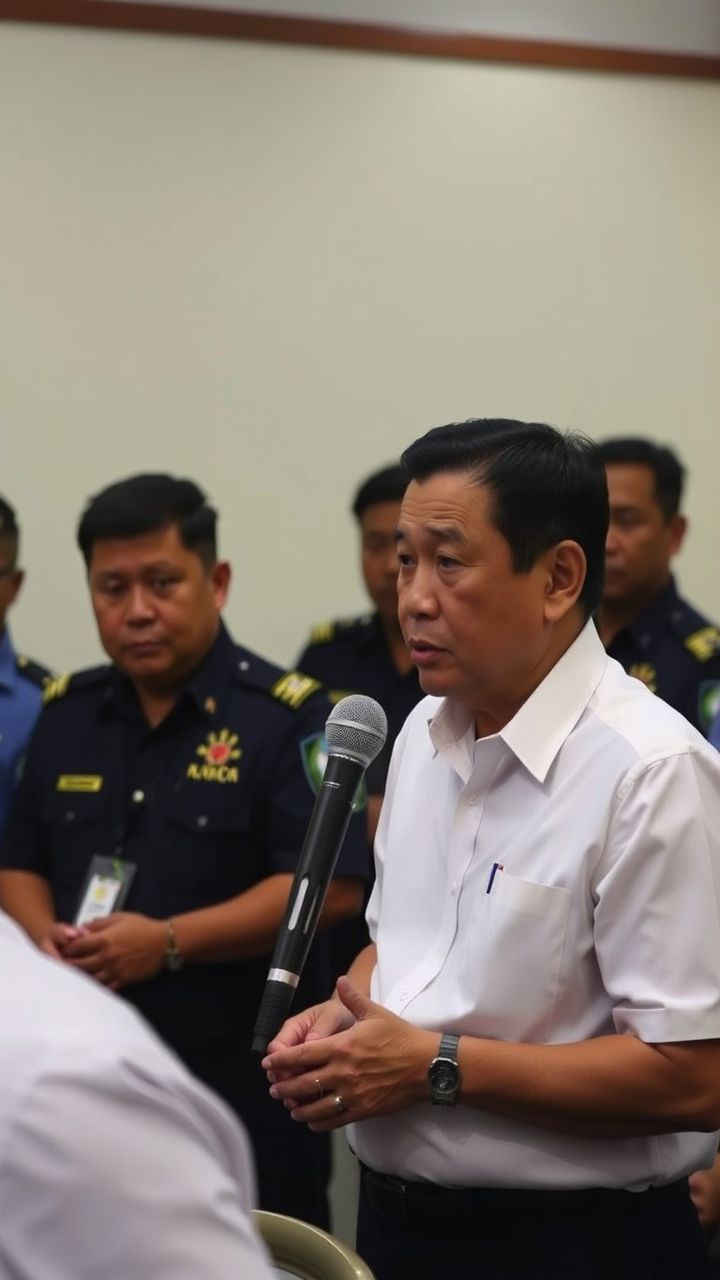
"Solicitor General Defends PhilHealth Fund Transfer Before Supreme Court A Temporary Solution or a Slippery Slope?
"Solicitor General Defends PhilHealth Fund Transfer Before Supreme Court A Temporary Solution or a Slippery Slope?
Title Solicitor General Defends PhilHealth Fund Transfer Before Supreme Court A Temporary Solution or a Slippery Slope?
The recent oral argument before the Supreme Court has sparked intense debate surrounding the P60-billion fund transfer from the Philippine Health Insurance Corp. (PhilHealth) to the Bureau of the Treasury, defended by Solicitor General Menardo Guevarra. The controversy has garnered widespread attention among healthcare advocates, lawmakers, and financial experts.
Guevarra argued that the transfer was a lawful and temporary measure to address fiscal needs without imposing new taxes or increasing national debt. He emphasized that Congress acted within its budgetary authority and did not exceed its constitutional limitations. The Department of Finance's (DOF) issuance of Circular 003-2024, which facilitated the transfer, was also deemed within the department's legal mandate.
Critics have raised concerns that this precedent could set a dangerous trend for future reallocations of PhilHealth funds, potentially weakening the financial stability of the health insurance system. However, Guevarra assured the Court and the public that there was no sinister plan behind the transfer, and that only surplus funds were transferred to the Treasury.
PhilHealth's core reserve funds remain intact, according to Guevarra, with only an unutilized surplus amounting to P60 billion being reallocated. This temporary solution aimed to address budgetary constraints without resorting to additional borrowing or imposing heavier tax burdens on the public.
The petition challenging the provision in the 2024 General Appropriations Act (GAA) was filed by former Senate president Aquilino Pimentel III, labor and civil society groups, legal scholars, and prominent left-leaning political figures. The respondents include top government officials and President Ferdinand Marcos Jr., who was named a respondent in the second petition.
In his opening statement, Guevarra requested that the Court drop President Marcos as a respondent, citing presidential immunity. He emphasized that the case should focus on the actions of Congress and the DOF, which were responsible for crafting and implementing the fund transfer mechanism.
Guevarra revealed that from 2021 to 2023, PhilHealth received P239.11 billion in government subsidies intended for indirect contributors, including senior citizens, indigents, and persons with disabilities. However, during this period, only P149.23 billion was used for benefit claims, leaving an unutilized surplus of P89.9 billion.
According to Guevarra, these funds were sitting idle while the government faced pressing fiscal needs. Rather than letting them remain underutilized, Congress and the DOF opted to reallocate a portion of the surplus to fund unprogrammed appropriations, including healthcare and social programs.
The Solicitor General concluded that the government's approach was a common-sense solution to address budgetary constraints without resorting to additional borrowing or imposing heavier tax burdens on the public. The case remains pending before the Supreme Court, with the Court expected to deliver its ruling in the coming weeks.
This controversy serves as a reminder of the complexities and challenges facing our country's healthcare system. As we navigate these issues, it is essential that we prioritize transparency, accountability, and fairness in our decision-making processes.
Keywords PhilHealth, fund transfer, Supreme Court, Solicitor General Menardo Guevarra, President Ferdinand Marcos Jr., Department of Finance (DOF), Circular 003-2024, 2024 General Appropriations Act (GAA).


